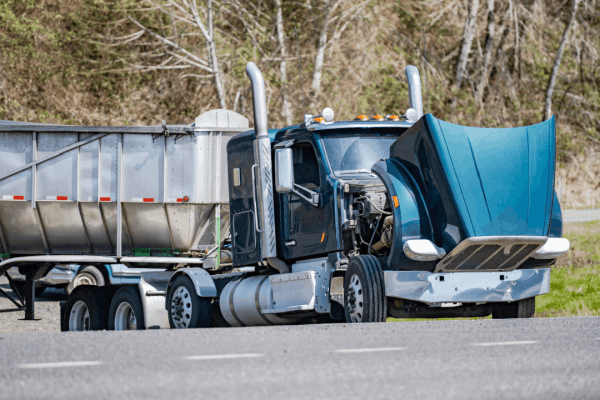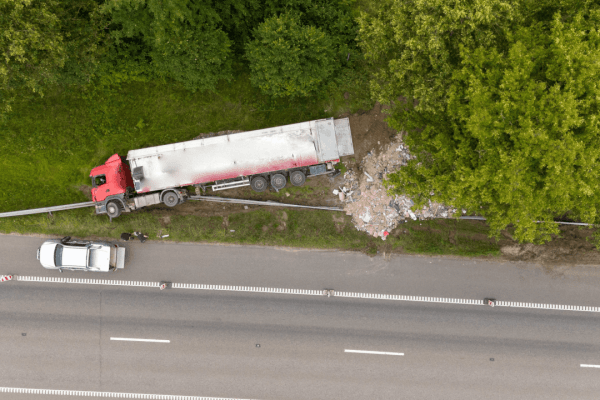
Truck Crash Compensation: Understanding Commercial Vehicle Accident Claims
Legal Basics: Understanding Truck Crash Compensation
Truck crash compensation refers to financial recovery available to victims injured in collisions with commercial vehicles weighing over 10,000 pounds. This compensation covers medical expenses, lost wages, pain and suffering, and other damages resulting from the accident.
Who Can File: Injured drivers, passengers, pedestrians, and family members of deceased victims can pursue compensation claims against trucking companies, drivers, or other liable parties.
Settlements vs. Court Awards: Settlements are negotiated agreements reached outside court, typically faster but potentially lower than jury verdicts. Court awards result from trial proceedings and can yield higher compensation but take longer to resolve.
Damage Categories: Types of Truck Crash Compensation Available
Truck crash victims can recover compensation through three primary damage categories, each addressing different aspects of their losses.
Medical Expenses and Rehabilitation Costs
Economic damages cover quantifiable financial losses including:
- Emergency room treatment and hospitalization
- Surgical procedures and medical devices
- Physical therapy and occupational rehabilitation
- Prescription medications and ongoing treatments
- Home modifications for disability accommodations
Lost Income and Earning Capacity
Wage-related compensation encompasses both immediate and future earning losses. Current lost wages are calculated using pay stubs and employment records, while diminished earning capacity requires vocational experts to project lifetime income reduction. Lost income calculations consider factors including annual earnings, age, career trajectory, and life expectancy.
Pain and Suffering Calculations
Non-economic damages compensate for intangible losses like physical pain, emotional trauma, and reduced quality of life. Courts use various calculation methods including multiplier approaches or per diem calculations depending on injury severity and jurisdiction.
Punitive damages apply when trucking companies demonstrate gross negligence, such as knowingly allowing fatigued drivers or ignoring safety violations. These awards punish misconduct and can significantly increase total compensation beyond actual damages.
Legal experts emphasize documenting all losses thoroughly, as comprehensive evidence strengthens valuation arguments during negotiations.
Settlement Factors: What Determines Your Truck Crash Compensation Amount
Multiple variables influence truck crash compensation amounts, creating significant variation between cases with seemingly similar circumstances.
How Comparative Negligence Affects Compensation
Fault distribution directly impacts recovery amounts. In comparative negligence states, compensation reduces proportionally to your percentage of fault.
Insurance Coverage Limitations
Insurance policy limits often cap maximum compensation regardless of actual damages. Commercial trucks carry varying insurance policy limits as required by law and industry standards, but catastrophic injuries may exceed these limits. Multiple insurance sources—trucking company, driver, cargo owner, and maintenance contractors—can provide additional coverage layers.
Role of Expert Witnesses in Valuation
Expert testimony significantly impacts settlement amounts. Accident reconstruction specialists establish liability, medical experts project future care costs, and economic analysts calculate lifetime earning losses. Expert witnesses provide important testimony for establishing liability and damages.
Key factors determining compensation amounts:
- Injury severity and permanence
- Clear liability evidence
- Victim’s age and earning capacity
- Available insurance coverage
- Quality of legal representation
Most truck accident cases settle before trial.
Evidence Requirements: Proving Your Truck Crash Compensation Claim
Strong evidence forms the foundation of successful truck crash compensation claims. Without proper documentation, even severe injury cases can result in inadequate settlements or claim denials.
Important Documents for Your Claim
Essential evidence includes comprehensive medical records documenting injury extent and treatment progression. Obtain complete hospital files, diagnostic imaging, physician reports, and rehabilitation assessments. Economic documentation requires employment records, tax returns, and expert projections for future wage losses.
Trucking-specific evidence proves crucial for establishing liability. Driver qualification files, hours-of-service logs, maintenance records, and company safety policies often reveal regulatory violations. Electronic logging devices (ELDs) and truck monitoring systems provide objective data about speed, braking, and driver behavior during the crash.
Working with Accident Reconstruction Experts
Professional reconstruction specialists analyze physical evidence, vehicle damage patterns, and road conditions to determine crash causation. Their testimony can definitively establish fault and counter trucking company defenses.
Evidence collection checklist:
- Medical records and treatment documentation
- Police reports and traffic citations
- Witness contact information and statements
- Photographs of vehicles, injuries, and accident scene
- Employment and financial records
- Trucking company operational documents
Critical timing: Evidence preservation demands must be sent within 30 days of the accident to prevent trucking companies from destroying electronic data and maintenance records. Waiting beyond this window can permanently compromise your case strength.
Legal Process: Steps to Secure Truck Crash Compensation
The truck crash compensation process involves multiple phases, each requiring strategic decisions that can significantly impact your final recovery amount.
Initial Phase Timeline:
- Immediate medical treatment and case evaluation (Days 1-30)
- Insurance claim filing and evidence preservation (Days 30-60)
- Investigation completion and demand letter submission (Months 2-4)
- Settlement negotiations or lawsuit filing (Months 4-8)
- Discovery phase and depositions (Months 8-18)
- Mediation attempts and trial preparation (Months 18-24)
When to Accept a Settlement Offer
Evaluate offers against total damages, not just immediate expenses. Red flags include pressure tactics, unreasonably short deadlines, and offers significantly below medical costs. Strong cases typically receive multiple counteroffers, so initial lowball settlements often indicate room for negotiation.
Preparing for Litigation
If settlement negotiations fail, litigation begins with formal complaint filing. The discovery phase involves document exchanges, depositions, and expert witness preparation. This process can extend 12-18 months but often motivates higher settlement offers.
Understanding Contingency Fee Arrangements
Contingency fee arrangement aligns attorney interests with case outcomes. However, clarify whether expenses are deducted before or after fee calculations, as this affects your net recovery amount.
Common Mistakes: Avoiding Truck Crash Compensation Pitfalls
Truck crash victims frequently make costly errors that permanently reduce their compensation potential. Understanding these pitfalls can protect your financial recovery.
Settlement and Documentation Errors
Accepting initial settlement offers represents the most expensive mistake. Insurance adjusters may offer initial settlements before victims fully understand their injury severity. Accepting early settlement offers can be problematic if additional medical issues are later discovered.
Incomplete damage documentation equally undermines claims. Victims often overlook future medical costs, diminished earning capacity, and non-economic losses like emotional trauma. Comprehensive documentation requires tracking all injury-related expenses and impacts.
Legal and Medical Missteps
Critical mistakes to avoid:
- Missing statute of limitations deadlines (1-3 years depending on state)
- Delaying medical treatment, which insurance companies interpret as minor injuries
- Providing recorded statements without legal counsel present
- Failing to preserve evidence before trucking companies destroy electronic data
- Accepting liability or admitting fault at accident scenes
- Not reporting incidents to police or insurance companies promptly
Expert Protection Strategies
Personal injury attorneys emphasize never signing documents without legal review. Insurance adjusters are trained negotiators working to minimize payouts, while recorded statements can be manipulated to damage your case. Recorded statements should be avoided without legal counsel, as they can be used against your claim. Immediate legal consultation can help protect your interests regarding your claim.
Final Considerations: Understanding Truck Crash Compensation
Successful truck crash compensation requires strategic planning, professional guidance, and comprehensive case development. Important case considerations include thorough preparation rather than quick resolution attempts.
Important considerations:
- Document every aspect of your damages, including future medical needs and earning losses
- Resist pressure for immediate settlements before understanding full injury extent
- Preserve all evidence through formal legal notices to prevent destruction
- Engage qualified experts for accident reconstruction, medical testimony, and economic analysis
- Choose attorneys with specific truck accident experience and resources for complex litigation
Building Your Strongest Case
Trucking companies deploy experienced legal teams and insurance adjusters trained to minimize payouts. Your recovery depends on matching their resources with equally skilled representation and meticulous case preparation.
Severe injuries require time to reach maximum medical improvement, which is important for assessing damages. Comprehensive documentation of physical, emotional, and financial impacts creates compelling evidence for understanding recovery options.
Remember that truck crash cases involve multiple potential defendants—drivers, trucking companies, maintenance contractors, and cargo owners—each representing additional compensation sources. Professional legal guidance ensures you pursue all available recovery avenues for your specific circumstances.
Next Steps: Getting Started with Your Truck Crash Compensation Claim
Don’t let time work against your truck crash compensation claim. Time considerations are important in truck accident cases due to evidence preservation requirements and statutes of limitations.
Visit trucking accident to connect with qualified legal professionals who understand the complexities of commercial vehicle cases. A network of experienced attorneys is available who work on contingency.
Frequently Asked Questions
1. How much truck crash compensation can I expect?
Truck accident settlements range from $50,000 to over $1 million, depending on injury severity, liability, and insurance coverage. Factors like permanent disability, lost earning capacity, and pain and suffering significantly impact final amounts.
2. How long does it take to receive truck crash compensation?
Most truck accident cases settle within 6-18 months, though complex cases involving severe injuries or disputed liability may take 2-3 years. Cases that go to trial typically take longer than negotiated settlements.
3. Can I still get truck crash compensation if I was partially at fault?
Yes, in most states you can recover compensation even if partially at fault, though your award may be reduced by your percentage of responsibility. This is called comparative negligence law.
4. What if the trucking company's insurance isn't enough to cover my damages?
Multiple insurance policies may apply, including the driver’s coverage, trucking company’s policy, and cargo insurance. An attorney can identify all available coverage sources to maximize your recovery.
5. Do I need a lawyer for my truck crash compensation claim?
While not legally required, truck accident cases involve complex regulations, multiple defendants, and sophisticated insurance companies. Statistics show represented claimants recover significantly more than those handling claims alone.
Key Takeaways
- Document Everything: Comprehensive medical records, lost wage statements, and evidence documentation directly impact your truck crash compensation amount
- Don’t Rush Settlements: Insurance companies often make quick, low offers before the full extent of damages is known – wait until you reach maximum medical improvement
- Multiple Parties Mean Multiple Policies: Truck accidents often involve several insurance policies, significantly increasing available compensation beyond standard auto coverage
- Time Limits Apply: Statute of limitations deadlines vary by state, typically ranging from 1-3 years from the accident date for filing truck crash compensation claims
Professional Representation Matters: Studies show accident victims with legal representation recover 3.5 times more compensation than those negotiating alone



